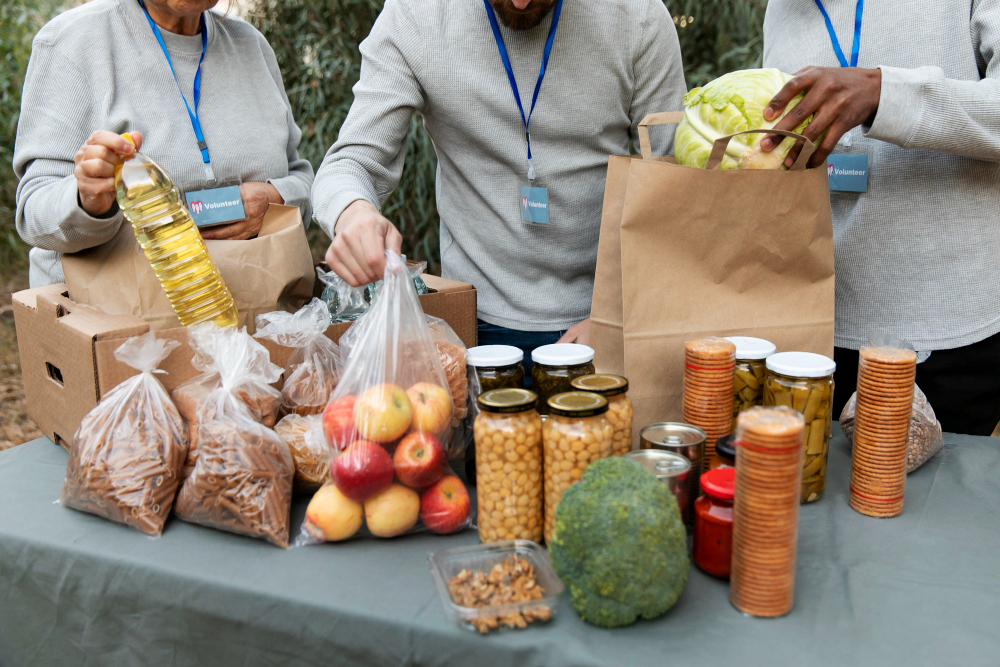

Africa is grappling with a food security crisis of unprecedented scale, worsened by the intertwining forces of climate change, ongoing conflict, and escalating inflation. Across the continent, millions are facing hunger, and experts warn that the situation will only deteriorate in the months ahead. The impacts of these crises are felt not only in the rising number of malnourished individuals but also in the destabilizing effect they have on economies and societies. As traditional agricultural systems buckle under the pressure of environmental and political instability, the urgency for sustainable, long-term solutions is clearer than ever.
Climate change is one of the foremost drivers of food insecurity in Africa. Unpredictable rainfall patterns, prolonged droughts, and rising temperatures are wreaking havoc on crops, jeopardizing food supplies, and threatening the livelihoods of farmers. In Southern Africa, goats are increasingly replacing cattle as a response to the harsh environmental conditions, underscoring the vulnerability of agriculture to a rapidly changing climate. In countries like Ethiopia, Somalia, and Sudan, the consequences of climate-induced disasters are compounded by conflict, further straining the already fragile food systems. Sudan stands as one of the most alarming examples, where famine conditions are spreading at an alarming rate due to a toxic mix of climate and conflict. The United Nations has warned that the risk of famine will continue to grow, particularly in areas where humanitarian access is severely restricted.
Conflict, too, plays a central role in exacerbating Africa’s food crisis. Wars, civil unrest, and regional instability disrupt food production, decimate infrastructure, and force millions to flee their homes, leaving entire populations without access to the most basic human needs. In conflict zones like Sudan and the Sahel, agricultural systems have been destroyed, leading to widespread food shortages. While humanitarian organizations are working tirelessly to provide aid, their efforts are often hindered by violence and access restrictions. The impact of conflict is not only immediate but also long-lasting, as it prevents agricultural recovery and investment in long-term solutions.
Inflation is adding yet another layer of complexity to Africa’s food insecurity. Global supply chain disruptions, rising energy costs, and economic instability have sent food prices soaring. As the cost of living increases, millions are pushed deeper into poverty, unable to afford the essentials they need for survival. In countries like Zimbabwe, Kenya, and Nigeria, rising food costs have made basic staples unaffordable for many families. The combination of escalating inflation and an already fragile agricultural base is intensifying the crisis, leaving more people vulnerable to hunger.
While the challenges are daunting, solutions are emerging. Governments and organizations are prioritizing food security, but much more needs to be done to address the root causes of the crisis. Climate-smart agriculture, which includes the use of drought-resistant crops and sustainable farming practices, is essential to build resilience in the face of climate change. In addition, investments in infrastructure—particularly in conflict zones—are critical to ensuring that food can be produced, stored, and distributed efficiently.
International collaboration is also crucial to tackling the global food security crisis. Addressing the underlying causes of food insecurity requires a concerted effort to promote sustainable agricultural development, reduce food waste, and strengthen local food systems. Governments, NGOs, and the private sector must work together to build resilience against climate change and conflict while meeting the immediate needs of vulnerable populations.
Africa’s food security crisis is a stark reminder of the interconnected nature of global challenges. The struggle for food security is not just an African issue—it is a global one that demands urgent action and sustained commitment. If we are to prevent millions from falling further into hunger, the time to act is now.


